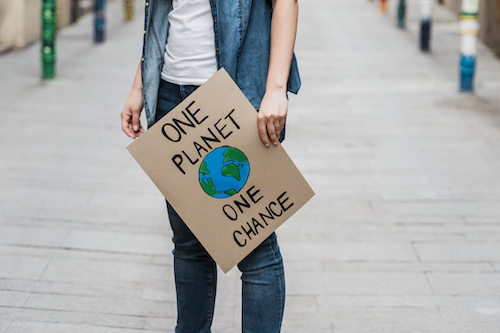The Climate Crisis: A Comprehensive Insight into an Escalating Global Problem

Climate change has become a pressing global issue, with the effects of rising temperatures and extreme weather events becoming increasingly apparent. The consequences are far-reaching, impacting not only humans but also entire ecosystems, wildlife populations, and even our pets. This article delves into multiple aspects of the climate crisis, including how it affects different regions, industries, and political landscapes.
Rising Temperatures and Natural Disasters
Natural disasters such as wildfires have grown more frequent and intense due to climate change. For example, the recent devastating wildfires in Hawaii resulted in billions of dollars in property damage and significant loss of human life. Furthermore, according to the Humane Society of Maui, approximately 3,000 pets were lost or missing as a result of these blazes.
Dr. Rena Carlson, president of the American Veterinary Medical Association, emphasizes that we cannot view these natural disasters as solely a human problem. The increasing risks of extreme weather and other climate-related catastrophes affect animals of all types, both wild and domesticated.
Increased Wildfire Severity in Alberta
In Alberta, Canada, thousands of people were forced to flee their homes due to severe wildfires – events which scientists attribute to human-caused climate change. Some argue that rising global temperatures are only “a minor variable” in out-of-control fires, although research indicates otherwise. The ongoing debate surrounding the role of fossil fuels and climate change in these disasters highlights the need for further investigation and action in this area.
Political Implications and Climate Policies
Climate change remains a hot topic on the political stage as well. In the United States, the Biden administration has proposed a new national marine sanctuary off the coast of California. Meanwhile, during recent GOP presidential debates, climate change was a highly contested issue, with candidates pointing fingers at China and expressing varying degrees of concern regarding the environment.
Legal Challenges to European Commission Policies
Environmental campaigners in Europe are taking legal action against the European Commission over its greenhouse gas emissions reduction policies, which they argue fall short of Europe’s fair share in combating climate change. By advocating for more ambitious emissions targets, these groups hope to hold leaders accountable for their role in addressing this global crisis.
Impacts on Industry and Business
The effects of climate change extend into various industries as well, such as oil and gas production. Alberta Premier Danielle Smith recently headlined an energy business forum alongside U.S. fossil fuels advocate Alex Epstein, who argues that human-caused climate change is “not a crisis”. Their shared perspective has generated controversy within the industry, illustrating the ongoing debate surrounding the role of fossil fuels in the climate crisis.
Glaciologists and the Shrinking Alpine Glaciers
- Glaciologist Andreas Linsbauer and his assistant Andrea Millhaeusler have been studying the rapid retreat of the Pers Glacier near Pontresina, Switzerland.
- This research contributes to our understanding of the environmental impacts of climate change, particularly in the context of rising sea levels.
- Findings from studies like these can help inform future policy decisions aimed at mitigating the effects of global warming.
In summary, the climate crisis is a multifaceted issue with far-reaching consequences across various aspects of society. From natural disasters threatening human and animal life to political debates and legal challenges, climate change demands urgent attention and action. It is vital that individuals, governments, and industries work together to address this global problem and ensure a sustainable future for all living beings.

